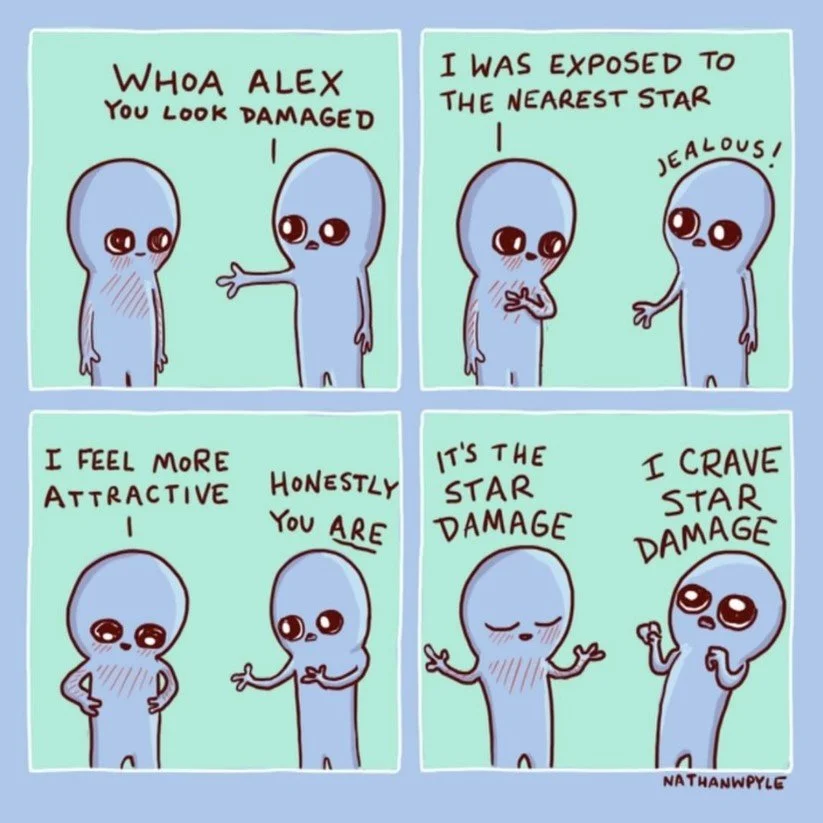What can Beowulf teach us about naming?
I’m talking about the wild world of kennings of Old Norse-Icelandic and Old English poetry.
These are a type of linguistic circumlocution (in other words, a “talking-around-something”), a compound word or phrase that employs figurative language in place of a more concrete single-word noun. And Old Norse and Old English poetry is full of them, and they’re fascinating. Examples:
báru fákr, “wave’s horse” = “ship”
íss rauðra randa, “icicle of red shields” = “sword”
sól húsanna, “sun of the houses” = “fire”
hron-rād, “whale road” = “the sea”
heofones ġim, “heaven’s jewel” = “the sun”
Take even the word Beowulf, literally “bee-wolf” which is a circumlocution of “bear.” There was an attitude or belief in that culture that a name was so powerful, that just by speaking it you might summon the thing itself. When you speak the name of a “bear” you risk a bear appearing and destroying the village. So they’d refer indirectly to things, calling a bear a “bee-wolf.” In fact, the word bear actually just means “brown-one” (bearan), itself another circumlocution. Russian does it too: медве́дь (medvédʹ) simply means “honey-eater.”
It's not a suntan, it’s star damage! (Strange Planet, © Nathan W. Pyle)
So what can we learn from kennings with regard to naming?
Names are powerful. They weren’t always used lightly, since a name is so tied to what a thing is, you could unintentionally manifest a powerful being itself just by speaking its name. Does your brand name support the essence that's at the heart of who you are?
Force yourself to redefine what you already know. Whether it’s naming a product or a company, try describing and then re-describing what you know about it to reach new, fruitful ideas. And that’s an iterative process; you have to explore, and then keep going. Let’s go further.
Sometimes, more words = more impact = more memorability. It’s a trope now in naming briefs to look for the perfect short, single English word. But honestly what’s more memorable and unique: “Ocean” or “Whale Road”? Customers don’t care how long a name is. They just don’t. What they care about is an experience.
A sense of adventure. We all crave adventure in some way. Looking at the world and trying to creatively redefine the names of objects around us can remind us that life truly is a fascinating adventure. It’s not just the sun, it’s the jewel of heaven, and don’t take it for granted. Neither take for granted your place in this cosmic story.
Do you need a name that inspires? Or even just need someone to rethink the naming situation you’re in, seeing it from a different perspective? Reach out! I’d love to chat.
